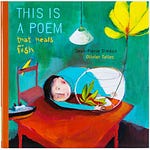This post is a little different from my other posts, and you might find it irksome, or it might even push you to a moment of anger, and therefore, the potential fallout might be that you, my reader, hits that 'unsubscribe’ button.
While I risk that fallout, I still have a few things to state, and you might not be in a place to hear someone preaching to the choir.
So what might I write about that is irksome? Well, this post has to do with the choices we make as parents. I might come across as holier than thou, but that's certainly not the intention.
The last seventeen months have been a test. The pandemic tore open the fabric of life in ways we didn't quite anticipate. Into this very confusing and, at times, debilitating, pandemic-intensive experience was thrown into sharp focus the system's inability to bring the best out of our children. It didn't really matter what Board your child attended (CBSE, ICSCE, IB or State); the jingoism of integrating mainstream education with online or tech-intensive learning began falling apart; it was ripe with problems, concerns and pitfalls. What was once passionate advocacy for tech-driven schooling soon turned to parents, educators and researchers making frantic pleas for in-person education.
In the last seventeen months, the hope is that we've had time to stay home, reconnect and establish new patterns, and that has afforded the opportunity to cut loose from traditional approaches to learning. While we continue to blame the 'system' for not meeting standards, what have we really done for our children?
Several parents have removed their children from school. These choices were either forced or were voluntary. Some of these choices were made either due to difficult financial circumstances or because parents had the wisdom to understand that 'online' was just another grand way of babysitting our kids.
For those of us who continue to 'send' our kids to this mode of schooling, we have yet to realise the shortcomings and deficits our kids have inherited. Let me give you an example:
I recently conducted an experiment with a few children aged between 6 and 10 in my neighbourhood. All of them came from two-income households, and the children attend 'good' English medium schools. I say that because, in this context, English is an important skill to learn, and the home environment coupled with the school environment becomes a significant catalyst in helping children learn a foreign/second language.
I administered a diagnostic test called the DIBELS. Very simply, the test assesses your child's reading capability as per their age. The test is free and can be taken either on-screen or can be printed on paper and administered.
It is designed for a western audience and may not be 100% accurate for the Indian context. However, considering that the children in this group had access to quality English education, the tasks were age-appropriate and within their ability.
I chose to administer the test both ways--on-screen and on paper. First, I asked the children to take the paper test. A few days later, I asked them to return and take the same test, but this time, it was on-screen.
The differences were remarkable, to say the least. The results were of significant importance for children aged eight and below because of what they could do with the paper-based test and the on-screen tests.
With the printed test, they moved their fingers along as they read and made minor errors that one anticipates for their age, but they were confident readers. However, when they took the same test on-screen, their words per minute slowed down, and they had trouble comprehending the words and sentences on the screen. They moved their fingers on the screens as they read, but the tactile experience of paper was suddenly missing leading to a significant drop in their confidence levels.
After the test, I met the parents of these children and asked them what they were doing to help their children read. And here lies the discrepancy.
Children were attending an online program where a large portion of their learning materials was on the screen. When school ended for the day, the parents were combining on-screen and paper-based materials to complete tasks. In some instances, since both parents were busy, this was outsourced to a third party--a tuition teacher.
The tuition teacher in the current circumstances also meets the child online. The tuition teacher, in most instances, was not aware of these different challenges that the child experienced.
The drop in reading rate and the confusion of transitioning between on-screen and off-screen materials were becoming very challenging for these children, and their support systems (parents or tutors) were not equipped to register these cracks that were beginning to form. Remember, this is with children where the school and home environments are largely supportive. If we try using this same experiment with children who don't have similar support systems, the learning loss will predictably be catastrophic.
I will not get into the science of cognition and learning at this point, but it is always helpful to have these scientific contexts in the background to make sense of what I am attempting to say. Children in the age brackets of 5 -8 are still learning to read. Therefore, mastery, along with comprehension as a combined activity, takes time and matures slowly. Without having to state the obvious, reading is the key to success.
In this instance, when a critical skill falls through the cracks because we, as parents, haven't understood the science behind reading, and now, science has varying degrees with online and offline, we need to look at learning from an entirely new perspective.
The question is, have we?









Share this post